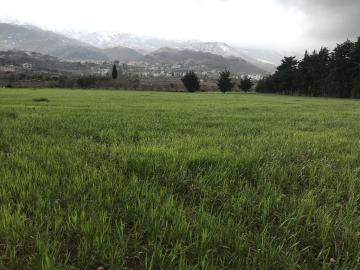Food Security Monitoring and Analysis at National Level –Reflection of Results in the Lebanese Ministry of Agriculture Strategy for 2021-2025
A broad overview of the agricultural sector in Lebanon shows that it contributes to only 3% of the national economy and public budget allocated to this sector has never gone beyond an average of 2% over the last 15 years. The sector employs about 7-9% of the total active labor force. The Ministry is now working on enhancing the performance of the agricultural sector, and as part of its efforts towards this, it is preparing a new 5-year strategy that will prioritize the new directions of the government in developing the agricultural sector and enhance its contribution to the achievement of related SDGs. There is a need to reflect the way MOA will address issues related to the four pillars of food security in the new strategy and decide what interventions and partnerships are necessary to help improve food security at national level in general.
ESCWA has developed a framework to monitor food security in the Arab region in partnership with the Arab Organization for Agriculture Development (AOAD) and FAO regional office in Cairo, within the context of the project on “Promoting Food and Water Security through Cooperation and Capacity Development in the Arab Region”. Lebanon has been part of the consultative process for development of the framework, and the MOA was represented.
In the above context, ESCWA, based on a technical assistance request from MOA, is organizing in cooperation with FAO and WFP Lebanon country office, a capacity building workshop on “Food Security Monitoring and Analysis at National Level –Reflection of Results in the Lebanese Ministry of Agriculture Strategy for 2021-2025” on the 15th of October 2019. The meeting aims to improve the capacity of participants in understanding the complex dynamics of food security monitoring at national level and help them analyse the latest data to inform the strategic directions that the government would take to improve food security in the new agriculture strategy.






